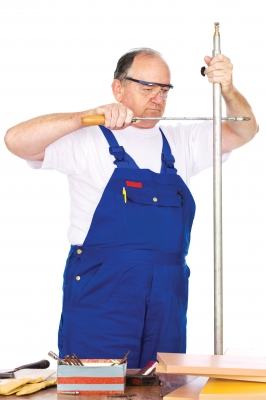Do you plan on replacing your boiler but not quite sure where to start or if you really need to? Here’s a quick guide for you.

Your boiler is one of the most important appliances you have in your home. Especially during the cold season, everyone is highly dependent on a central heating system to keep the home warm. However, just like any other device, a boiler is prone to wear and tear. You certainly do not want your boiler to break down during the months that you need it most. Replacing your boiler can be a daunting and tedious task if you do not know how.
Here’s What You Need To Know:
- Your boiler is responsible for about 50 – 55% of you energy bill annually.
- New boiler models are more energy- efficient than those produced 10 years ago, or older.
- The temperature controls have improved so much since then. Hence, you can adjust the heat settings more precisely with newer boiler models.
- Most boiler companies quote about £310 per year in savings when an old boiler is replaced with a newer model. However, the Energy Saving Trust calculated this based on a household using the oldest, least efficient boiler in a 3- bedroom, semi- detached house.
- If your boiler was purchased in the late 1990’s or the early 2000’s, your annual savings will likely be half of this.
- However, you also want to consider that getting a newer, more efficient boiler will also mean you will need less boiler repairs.
- Boilers usually last up to 15 years. If what you have is nearing this age, you should consider replacing your boiler.
- The older a boiler gets, the harder it has to work to properly heat your home. This means they are less efficient, are using more energy, and the risk of boiler problems is higher.
- It is important to get annual boiler service to ensure a long lifespan. Hire a Gas Registered Safe engineer to ensure your boiler is running safely. The annual service will also indicate problems with the boiler, allowing your engineer to fix it before it actually breaks and repairs become costly. It is a good investment to make so that repair costs don’t make a hole in your pocket.
- Check if your home insurance policy includes your boiler coverage.
Replacing Your Boiler
Here are some things to consider before spending hard earned money on replacing your boiler.
- Get the right type of boiler for your home. The most common type is the “combi” boiler, or combination boiler. It is energy efficient because it heats the water as you need it. Take into consideration your future plans – expanding your family, renovating and adding more rooms, installing solar thermal technologies.
- Consider the price. The price of a new boiler can vary, depending on the brand and type of boiler. Take into consideration that other than purchasing the boiler, you have to pay for the installation as well.
- Hire the right people. You can either hire an independent installer or an energy provider to do the job. Make sure that the engineers who will complete the job are Gas Registered Safe. Independent installers usually offer lower rates. However, an energy provider will be able to offer you additional things such as boiler care packages or a remote system so that you can turn your boiler on and off from your mobile phone. As your installer if they are implementing the installation of pipes inside your house and if they are using larger bore pipes. This will help avoid freezing of the pipes during very cold weather.
- Make your research. Whatever you decide on, make sure you do your own research thoroughly. Do a research on what the best boiler brands are in the market today and compare prices before replacing your boiler.
While replacing your boiler can be tedious, RJ Gas Heating Services can help you make it easier; call us today and get in touch with one of our Gas Registered Safe engineers.








